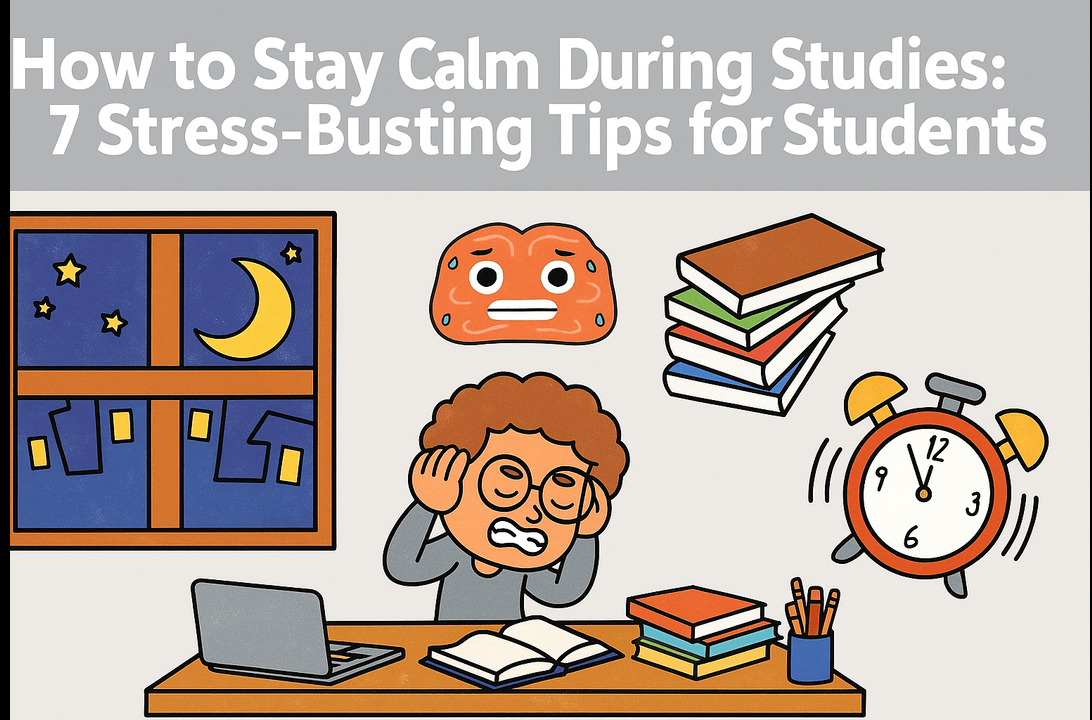Reduce Mental Stress Why Students Face Stress in Being a student today isn’t easy. Between exams, projects, social expectations, and the pressure to perform, stress often becomes part of daily life. Many students don’t realize that unmanaged stress can impact memory, focus, and even physical health. That’s why exploring stress relief techniques for students has become so important.
In this guide, we’ll break down how stress works, why it feels overwhelming, and practical ways to fight it — especially during study sessions and exam periods.
1. How to Reduce Mental Stress?

Understanding Mental Stress in Students
Mental stress happens when your mind feels overloaded. For students, this could come from:
- Fear of failing exams
- Comparing yourself to others
- Having too much workload and less time
- Lack of proper sleep and exercise
Stress can lead to headaches, fatigue, irritability, and even poor grades. The good news? Mental stress can be managed.
2. Practical Daily Habits That Lower Stress
- Maintain a routine: Stick to a daily study schedule.
- Stay active: A 20-minute walk or light exercise can improve mood.
- Eat balanced meals: Avoid junk food; go for fruits, nuts, and green veggies.
- Limit social media: Scrolling endlessly increases anxiety.
- Practice gratitude: Write down 3 things you’re grateful for each day.
3.Why Can’t I Handle Stress?
Common Reasons Students Struggle with Reduce Mental Stress
- Lack of preparation before exams
- Poor time management
- Negative self-talk
- Trying to do everything alone
How to Build Mental Strength to Cope Better
- Shift your mindset: Replace “I can’t” with “I will try.”
- Seek support: Talking to a teacher, mentor, or friend can lighten your mental load.
- Break big goals into small steps: Completing smaller tasks makes you feel in control.
- Learn relaxation techniques: Deep breathing or yoga can train your body to stay calm.
4. How to Relieve Stress When Studying?
Studying under stress often leads to low productivity. Here’s how to make study time stress-free.
Study Techniques That Reduce Stress
- Pomodoro Method: Study for 25 minutes, take a 5-minute break.
- Active recall: Instead of just reading, test yourself.
- Mind maps: Visual learning helps reduce pressure and improves memory.
Role of Breaks, Sleep, and Environment
- Breaks: A 10-minute walk refreshes your brain.
- Sleep: Aim for 7–8 hours to keep your memory sharp.
- Environment: Choose a quiet, clutter-free space with good lighting.
5.What Exercises Are Good for Stress?
Physical Activities That Boost Mood
- Jogging or brisk walking: Releases endorphins that fight stress.
- Yoga: Improves focus and reduces anxiety.
- Sports: Playing football, badminton, or cricket relieves mental tension.
6. Breathing and Relaxation Techniques
- 4-7-8 Breathing: Inhale for 4 seconds, hold for 7, exhale for 8.
- Progressive muscle relaxation: Tense and release muscles slowly to relax the body.
- Meditation apps: Use free apps like Calm or Headspace for guided sessions.
7 .How to Avoid Stress Before an Exam?
Smart Revision Strategies
- Start revision at least 2–3 weeks before exams.
- Make summary notes and flashcards.
- Revise daily instead of cramming last minute.
Mindset Shifts for Exam Day
- Don’t compare with classmates; focus on your progress.
- Believe in your preparation — confidence lowers anxiety.
- Use breathing exercises right before the exam to calm nerves.
Additional Stress Relief Techniques for Students
Journaling and Expressive Writing
Writing down your feelings reduces anxiety and clears mental clutter.
Mindfulness and Meditation
Spending even 10 minutes practicing mindfulness helps bring focus back to the present moment.
Talking to Mentors or Friends
Reduce Mental Stress Sometimes, sharing your worries is all you need to feel lighter. A mentor can also provide practical advice.
FAQs
1. How can I reduce stress quickly before studying?
Take 5 deep breaths, drink water, and do a quick stretch before opening your books.
2. What’s the best exercise for students to beat stress?
Yoga and brisk walking are simple and highly effective.
3. Can stress affect exam performance?
Yes, high stress reduces memory recall and focus, leading to poor performance.
4. How can I avoid last-minute exam panic?
Prepare in advance, use summary notes, and stay calm with breathing exercises.
5. Is it normal for students to feel stressed daily?
Yes, mild stress is normal, but if it feels overwhelming, seek help from a counselor.
6. Where can I find more stress management resources?
Websites like Mind.org.uk offer excellent stress management guides for students.
Conclusion: Building a Stress-Free Student Life
Reduce Mental Stress is part of student life, but it doesn’t have to control you. By adopting simple stress relief techniques for students — from exercise and meditation to smart study methods — you can turn anxiety into motivation. Remember, it’s not about avoiding stress completely, but learning how to manage it effectively.

My name is Anaya Afrin, the founder of Seekho Smart. I built this platform to make knowledge simple, clear, and truly useful for students and readers everywhere. With over 6 years of blogging experience, I’ve learned how to turn complex topics into easy guides that inspire learning. Through my writing, I aim to share practical knowledge that not only informs but also empowers people to grow and achieve their goals.


2 thoughts on “How to Reduce Mental Stress?”